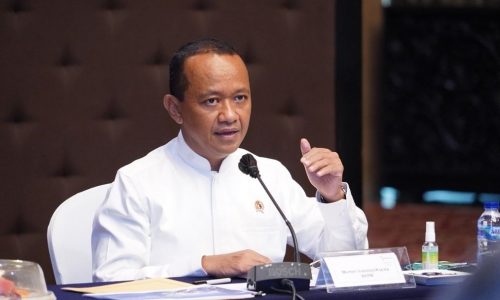Mining experts and members of Indonesia’s House of Representatives (DPR RI) have jointly called upon the government to halt the construction and implement a moratorium on new nickel smelters within the country.
This appeal stems from concerns over the diminishing nickel reserves in Indonesia, with predictions indicating that these reserves could be depleted within the next 7 years.
Nickel reserves rapidly depleting
The Indonesian Mining Association (IMA) has urged the government to take decisive action by imposing restrictions on the construction of high-grade nickel smelters that produce Nickel Pig Iron (NPI) and Ferro Nickel (FeNi).
This appeal arises from the fact that Indonesia’s nickel reserves are rapidly depleting, particularly as the number of fully operational nickel smelters increases.
Djoko Widajatno, the Acting Executive Director of IMA, highlights the potential strain on nickel reserves, explaining that the projected 132 operational smelters (comprising 22 existing and up to 28 planned integrated and stand-alone smelters) could exacerbate the demand for ore, leading to a sharp increase and potentially exhausting the reserves in 7 years.
Additionally, Mulyanto, a member of DPR RI’s Commission VII, criticizes the government’s sluggish response to the looming nickel reserve crisis.
Mulyanto suggested that a more serious approach is needed, including halting the construction of type-1 smelters that produce products like NPI and FeNi.
Mulyanto recommends conserving nickel resources by restricting the export of semi-processed nickel with a 4% to 10% content. He also emphasizes the potential of processing saprolite—a type of nickel ore with higher value—into more valuable products.
Experts echoes similar concern
Rizal Kasli, Chairman of the Indonesian Mining Experts Association (Perhapi), echoes these concerns, advocating for an immediate moratorium on new nickel smelters. Rizal emphasizes that the strategic nickel reserves in Indonesia are diminishing and may not endure for long.
He differentiates between two types of nickel ore, highlighting the limited supply of saprolite, a high-grade nickel ore, and its potential depletion within seven years. In contrast, the lower-grade limonite reserves are projected to last around 33 years.
Minister responds
In response, the Minister of Energy and Mineral Resources (ESDM), Arifin Tasrif, has already called for a halt to new investments in the construction of Rotary Kiln Electric Furnace (RKEF) technology-based nickel smelters, particularly those producing secondary nickel products like NPI and FeNi. He has conveyed the government’s stance against further investment in this sector.
The collective pleas from mining experts and government officials underscore the urgency of addressing Indonesia’s depleting nickel reserves and the need to strike a balance between industrial development and resource conservation.









